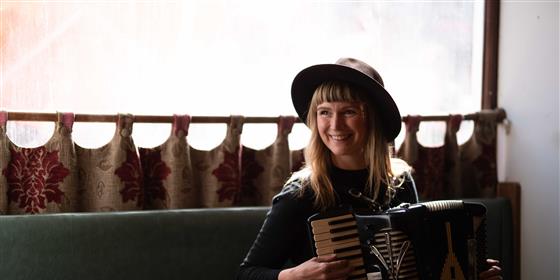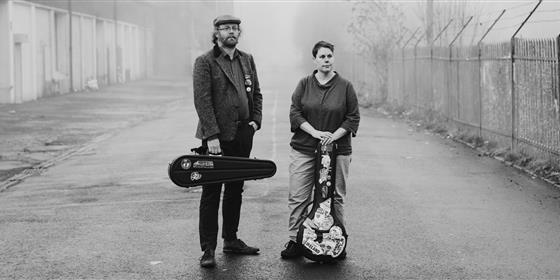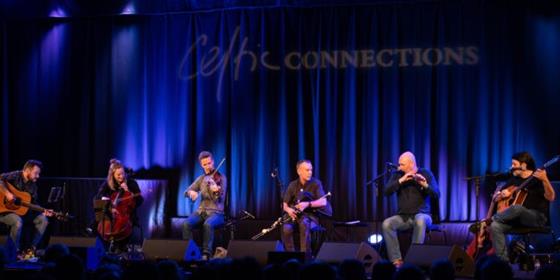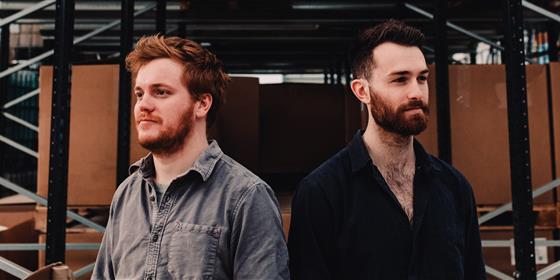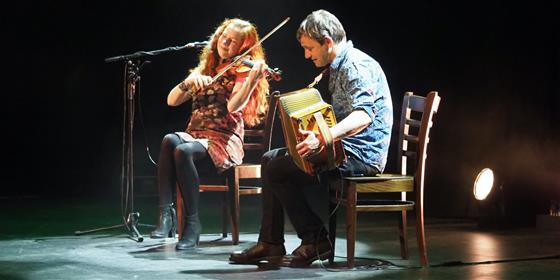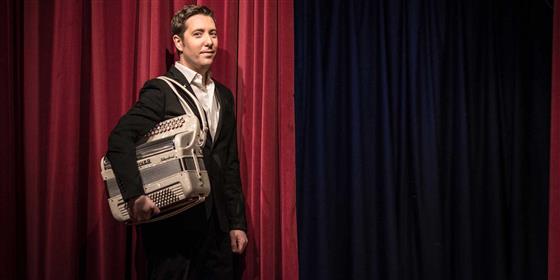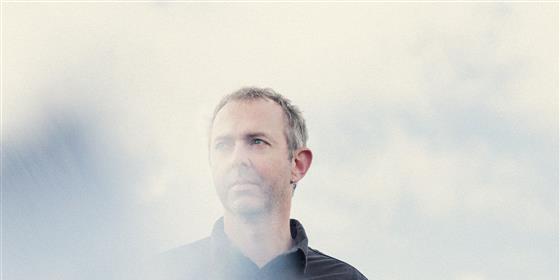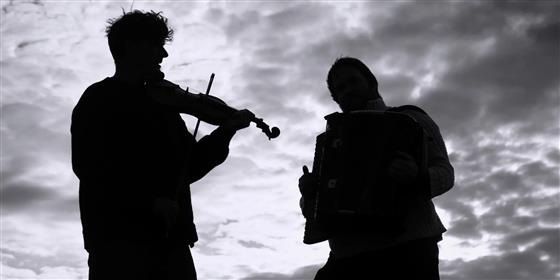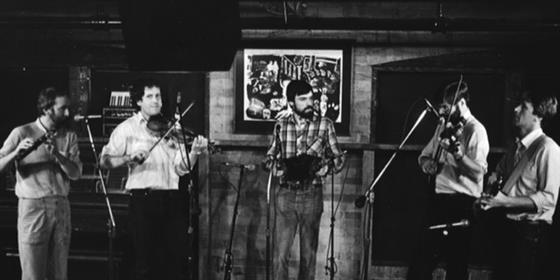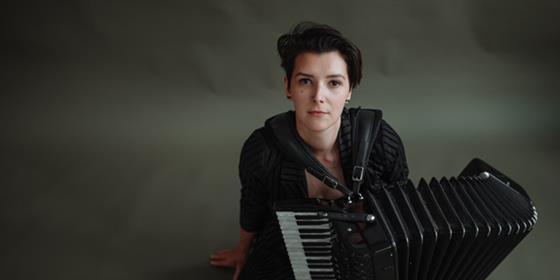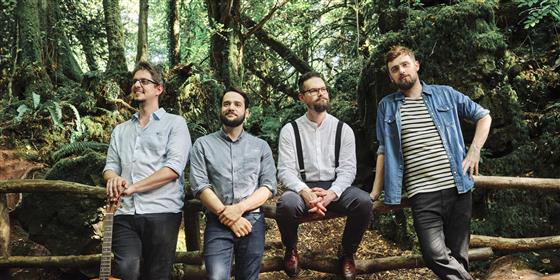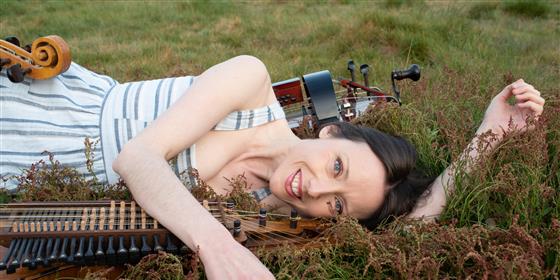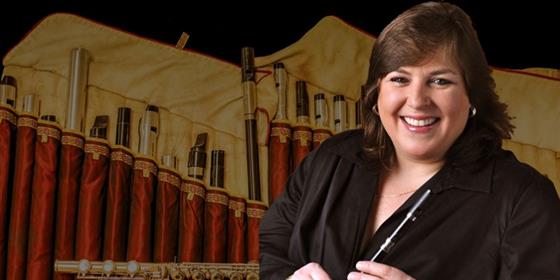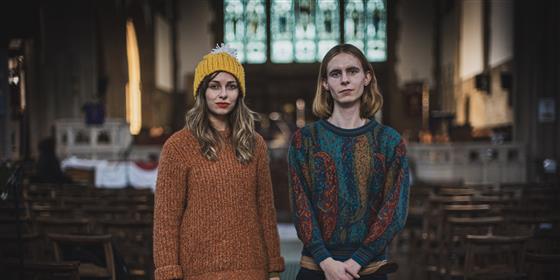Posted by Michele Mele 20 July 2025
Born and bred in North Lincolnshire, Nicholas Konradsen is a young musician and instrument maker, best known for his eclectic and almost instinctive approach to folk and ancient music. Most of his work so far has been concentrated on his self-penned early music inspired compositions, performed on the instruments that he crafts in a little room of his house: bagpipes, hurdy gurdies, lyres, and more.
He is renowned for his fundamental role in reconstructing the previously defunct Lincolnshire bagpipes from the available sources, a job that required a careful analysis of old texts, including 15th century manuscripts, Elizabethan historical commentaries, and even references in William Shakespeare’s plays, and a thoughtful work of design. Thanks to his versatility, multiple language skills and fine craftsmanship, he is a sought-after guest at folk and early music festivals all over England and further afield.
He has been so kind as to answer a few questions for Bright Young Folk readers.
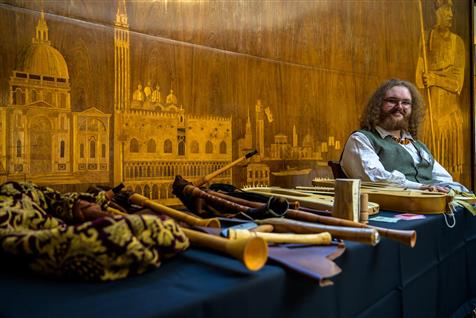
How did your musical journey start?
Well, you could either look at it from the very beginning, there was a piano in my childhood home for a time, though after a while it was dismantled and the metal harp section lived in the garden, which i enjoyed hitting with sticks to hear the sound. My mum was regretful of getting rid of it later on though I ended up getting into Lego, leading to making things so it all worked out in the end! I used to get a musical Christmas present every year from a family friend through my childhood too.
However, my current bout of musicianship originated at age thirteen after getting a MIDI Keyboard for my birthday, and I spent time at home after school learning to play game soundtrack pieces on there. I then ended up picking up the recorder, then accordion, and then finding my way to the wonderful world of traditional and medieval instruments.
Who were the teachers and artists who had the greatest influence on your musical tastes?
One of my earliest musical heroes was probably Guilhem Desq, who fascinated me with the hurdy-gurdy. I had the chance of meeting him and hearing him play at an intimate park-bench performance in France. Lovely person.
I’ve had such a huge range of musical tastes, Huun-Huur-Tu, Wardruna, Trouvere, Hedningarna, and all sorts of traditional musicians that I can’t pinpoint many specifically. At the moment I’m listening to a lot of traditional English music (Martin Carthy comes to mind).
Can you recall a single moment or episode that sparked your interest in folk and ancient music?
There are a few pivotal moments. One being meeting my now-acquaintance Quentin Budworth (Celtarabia, Agent Starling) busking by a local swimming pool when I was aged ten. I also met Paul and Gill of Trouvere Medieval Minstrels at a local castle performing at a jousting day that I went to when I was a young teen, when I was still aiming to become a blacksmith!
You play an impressive array of instruments. What is, in your opinion, the most underrated, and why? And which one of them would you suggest a person who has never played an instrument before to start with?
It’s very hard to choose. There are so many, although the bagpipe family of instruments certainly deserves a mention. I really specialise in the underrated instruments so most of the things I play are perfectly reasonable candidates, though I recently built myself a clog-fiddle and I’m having great fun playing it.
Not to blow my own trumpet, but I would suggest learning the lyre harp (Saxon, Germanic, or ancient Greek) , the former two I make myself! They are very hard to make unpleasant noises on once you’ve tuned the strings, and there’s only six or seven notes.
You recently released The Last King of Lindesey, a seven-track album centred on the Anglo-Saxon lyre, one of the many instruments you craft. Why is this old instrument living a renewed growth in popularity? What are the characteristics that you love about it?
Certainly due to the renewed Viking interest that probably started about the time that the TV show of the same name came out. There’s bands like Wardruna that make heavy use of the lyre and it’s also very good in reenactment circles, of which European iron age and early medieval period are popular subjects, which is it mostly home to. It also has a very pleasant appearance and the sound is lovely, and very easy to play.
It’s really something special to play something that was played and heard over a thousand years ago!
How did you pick up instrument making?
My grandad instilled the attitude of DIY in my at a young age. We never had very much money (and still don’t, especially now as a musician who keeps buying instruments!) and when I wanted to play instruments I had to put in the work.
Trying to repair rotting accordions from junk shops, making elder branches into reedpipes before trying to learn to wood-turn on a £60 lathe to make my own bagpipes, and eventually getting to where I am now. It was very natural for my to make my own instruments as i’ve always liked making things and I have a stubbornness that manifests in the feeling of “I can do that”.
Before I got my first little Hurdy Gurdy I fashioned one myself from an old classical guitar body, hardware store hardware and old cupboard sides. It sounded quite like historical Eastern European Hurdy Gurdies and was not unpleasant at all. I’ve now got myself into quite some funny situations with that attitude now, finding myself hanging up goat-skin balloons outside and getting buried under reams of paper patterns i’ve designed!
What has been the hardest task in reconstructing the Lincolnshire bagpipes?
It was definitely the mental task of calling it finished. I could infinitely tweak the design and I’d never be happy so I just had to make it and call it done. There’s so little to go off that I don’t think any one interpretation is better than another. I wanted to make it to the best standard I could, though my standards are quite high for my own work!
Can you name a spot or a few places in your local area that has inspired or still inspire you to compose?
There’s a valley that once housed a medieval village called Biscathorpe, where three rivers converge in a very nice way, and there are also various seasides and woodlands that inspire me a lot. I’m also quite fond of my local burial mounds, Bully Hills and Grim’s Mound.
What are your plans for the future?
I’d like to go more in the direction of traditional English music, and particularly try to sing more as I often play instrumental music, and as soon as I sing one song, all feedback is in regards to my singing! I also have a long list of instruments I’d like to try to make as I’d like to know how they would’ve sounded. So, apart from learning to drive, more of the same!
See all of Bright Young Folk's text interviews.